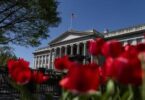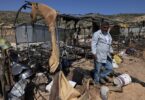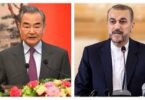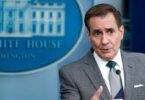NEW YORK (APP): Prime Minister Shahid Khaqan Abbasi is set to meet several world leaders, besides addressing the U.N. General Assembly, in the course of his four-day visit to New York at which he will focus on the Kashmir dispute, Myanmar’s Rohingya crisis and the Afghanistan issue, according to Pakistani diplomats.
The U.N. visit will be Abbasi’s debut into the highest international diplomacy, after being sworn in as prime minister last month.
The prime minister, who arrives Monday evening, will go through a tightly laid-out schedule, participating in U.N. events related to the 72nd session of General Assembly as also some forums on the sidelines of the 193-member body.
Briefing Pakistani journalists, Pakistan’s U.N. Ambassador Maleeha Lodhi said nine bilateral meetings, including with US Vice President Mike Pence, have been confirmed and more could also take place as the prime minister’s visit proceeds.
Other bilaterals will be with the Jordanian King and leaders of Turkey, Afghanistan, Sri Lanka, Iran, the United Kingdom and Nepal. He will also have talks with UN Secretary-General Antonio Guterres. In addition, the prime minister will exchange views with former US Secretary of State Henry Kissinger and some American business leaders.
More than 100 heads of state/government have signed up for the high-level debate, which begins Tuesday. The debate defines international responses to many of the global challenges of today, including protracted conflicts, extreme poverty and hunger, terrorism, the refugee crises and climate change.
The Assembly has 174 items on its agenda after a new item was inscribed on Friday. It is entitled: “The responsibility to protect and the prevention of genocide, war crimes, ethnic cleansing and crimes against humanity.”
Extraordinary security arrangements have been put in place in around the U.N. Headquarters in New York ahead of the high-level session in which US President Donald Trump will deliver his maiden speech at the United Nations on Tuesday. The U.S. is traditionally the second speaker on the opening day of the General Debate, after Brazil.
On Sept 21, the prime minister will address the General Assembly which is often called the world parliament. He will outline Pakistan’s positions on key international political, social and development issues of vital concern to the country.
Ambassador Lodhi said the United States had suggested Vice President Pence’s meeting with the Pakistani leader because “they want to re-engage with Pakistan.” According to informed sources, the Pence-Abbasi talks will take place on Tuesday.
The meeting comes in the wake of unveiling by President Trump of his administration’s policy on Afghanistan and South Asia. The policy lays special emphasis on kinetic operations to subdue the Taliban insurgency in Afghanistan, envisions greater role for India in Afghanistan and the overall regional security. He also lambasted Pakistan for offering safe havens to “agents of chaos”.
Responding to questions, Pakistan’s Ambassador to the United States Aizaz Chaudhry, who was also present at the briefing, said the United States has its own views about Afghanistan and Pakistan has its own position. “We will see how it goes.”
Elaborating, Ambassador Lodhi said Pakistan’s policies, which are based on the country’s national interest, are framed in Islamabad, not in Washington. She said that it had been Pakistan’s consistent position that peace could be restored only through a negotiated settlement.
Ahead of the session, Guterres, the UN chief, highlighted the grave situation confronting Myanmar’s persecuted Rohingya Muslims. He called for Muslims from the country’s Rakhine state to be granted nationality or at least a legal status that would allow them to lead a normal life, while also urging the international community to help provide assistance for the nearly 400,000 people who have fled into Bangladesh.
“I call on the Myanmar authorities to suspend military action, end the violence, uphold the rule of law, and recognize the right of return of all those who had to leave the country,” the Secretary-General said in his first press conference since the opening of the Assembly’s 72nd session.
Guterres repeated his call for “an effective action plan” to address the root causes of the situation, which he said he been left to fester for decades and has now escalated beyond Myanmar’s borders, destabilizing the region.
On the sidelines of the General Assembly Session, Prime Minister Abbasi will address the Council on Foreign Relations besides interacting with the US Pakistan Business Council.
He will also have extensive interaction with the international media. In the course of the Assembly session, ministerial-level meetings of many regional and sub-regional organizations will be held, including OIC, NAM, G-77, ECO, SAARC, Commonwealth, D-8 and others.
A meeting of the OIC Contact Group on Jammu and Kashmir will also be held. A statement issued by the Foreign Office in Islamabad underscored Pakistan’s advocacy of multilateralism and the United Nations to promote collective responses to the multifaceted challenges of global peace, security and development.
The statement said Pakistan would continue its constructive role and engagement at the UN with a view to protecting and promoting its national interests, including on core issues such as Jammu and Kashmir, reform of the Security Council, counter-terrorism, human rights, peacekeeping, and a host of development and other matters.






